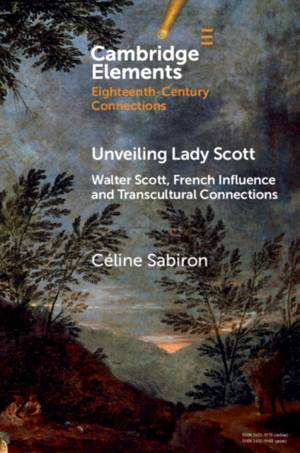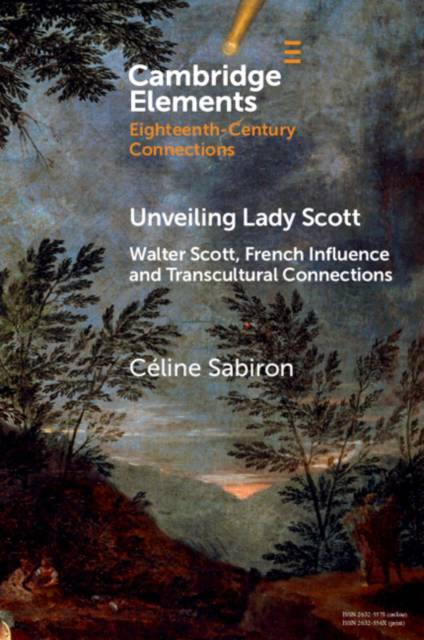
Bedankt voor het vertrouwen het afgelopen jaar! Om jou te bedanken bieden we GRATIS verzending (in België) aan op alles gedurende de hele maand januari.
- Afhalen na 1 uur in een winkel met voorraad
- In januari gratis thuislevering in België
- Ruim aanbod met 7 miljoen producten
Bedankt voor het vertrouwen het afgelopen jaar! Om jou te bedanken bieden we GRATIS verzending (in België) aan op alles gedurende de hele maand januari.
- Afhalen na 1 uur in een winkel met voorraad
- In januari gratis thuislevering in België
- Ruim aanbod met 7 miljoen producten
Zoeken
€ 33,45
+ 66 punten
Uitvoering
Omschrijving
This Element sheds new light on Walter Scott's work by investigating the French influence of his wife, Charlotte Charpentier, later Lady Scott, through her transcultural upbringing and international connections. Much of the limited information about her is tainted by misconceptions from predominantly British male biographers of Scott, whose perspectives were centred on the great man and coloured by anti-French sentiment during the revolutionary period. Through new French and British public records, historical archives, annual registers, and personal materials like letters and diaries from the Scotts' family and social circles, this Element corrects false allegations and highlights her significant, yet largely unrecognised, behind-the-scenes social and literary influence on Scott's writing. By analysing these sources and conducting in-depth readings of Scott's texts, the Element emphasises Scott's collaborative literary approach and argues that Lady Scott, a knowledgeable art and literature enthusiast, greatly assisted him in his work as his secretary, amanuensis, and proofreader.
Specificaties
Betrokkenen
- Auteur(s):
- Uitgeverij:
Inhoud
- Aantal bladzijden:
- 98
- Taal:
- Engels
- Reeks:
Eigenschappen
- Productcode (EAN):
- 9781009535335
- Verschijningsdatum:
- 4/12/2025
- Uitvoering:
- Paperback
- Formaat:
- Trade paperback (VS)
- Afmetingen:
- 152 mm x 229 mm
- Gewicht:
- 140 g

Alleen bij Standaard Boekhandel
+ 66 punten op je klantenkaart van Standaard Boekhandel
Beoordelingen
We publiceren alleen reviews die voldoen aan de voorwaarden voor reviews. Bekijk onze voorwaarden voor reviews.









